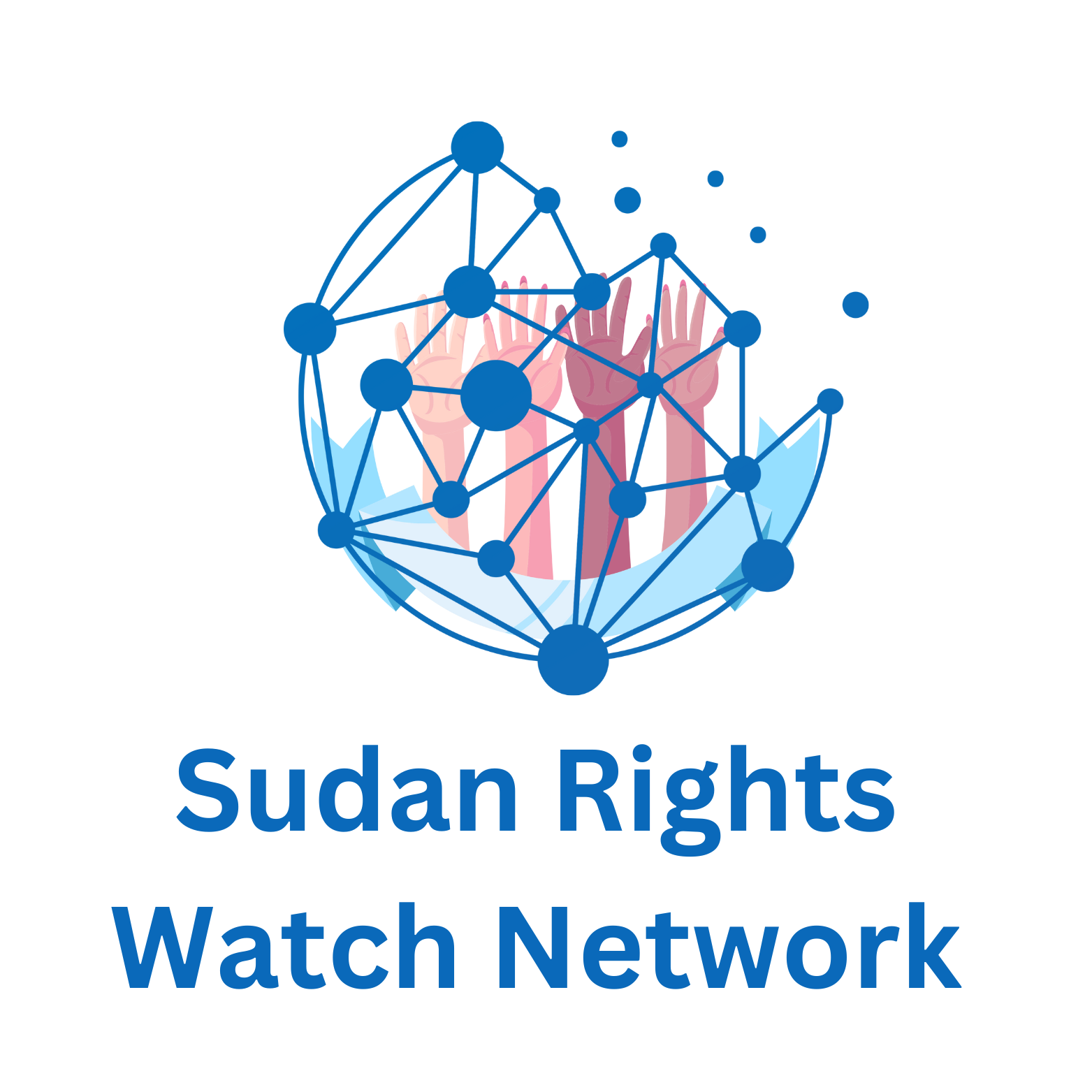Weekly Update | August 18, 2025 – El Fasher
On the morning of Saturday, August 16, the Abu Shouk camp for internally displaced persons (IDPs) north of El Fasher, North Darfur State, western Sudan, was subjected to heavy artillery shelling by Rapid Support Forces (RSF). The shelling resulted in dozens of deaths and injuries, including women, children, and humanitarian and public sector workers in the state. The shelling caused widespread destruction amid already dire humanitarian and health conditions due to the siege imposed by the RSF on El Fasher since April 2024, as confirmed by the field monitor for Sudan Rights Watch Network in the state.
According to Al-Rasid’s monitoring, this attack represents an extension of a series of serious violations against civilians in Darfur, reflecting the dynamics of the April 15 war, the most violent and tragic in Sudan, particularly in the Darfur region, where civilians and displacement camps were repeatedly turned into military targets in flagrant violation of international humanitarian law.
Facts of the incident:
Number of victims: At least one humanitarian volunteer was killed in Abu Shouk camp and 20 others were injured.
Additional losses: Partial destruction of property within the camp, including homes and small shops.
Health situation: A near-total lack of medicines and a shortage of medical personnel has led to the widespread spread of epidemics such as cholera due to the siege imposed on El Fasher.
Related incidents:
In the past two days, Ahmed Gandoul, the owner of a restaurant near Nabd al-Hayat Hospital, was assassinated on ethnic grounds on the outskirts of El Fasher. The footage of his targeting by members of the Rapid Support Forces was widely circulated on social media.
Displaced persons from Abu Shouk camp were taken to an unknown location on August 16, with cases of enforced disappearances increasing in the preceding days.
On August 11, at least 40 people were killed, according to the Abu Shouk camp emergency room, and 19 others were injured with varying degrees of severity. Six missing persons were also reported in another attack within parts of the camp. Among the victims were prominent figures in the local community, such as Sheikh Mohammed Suleiman, the imam of the Naivasha Market Mosque, and Professor Al-Doma, a veteran teacher and a pillar of education in the camp.
Legal Analysis:
According to the provisions of international humanitarian law and the Geneva Conventions and their Additional Protocols:
Targeting civilians and displacement camps: Camps are considered protected areas with humanitarian status, and any deliberate attack on them constitutes a war crime and a crime against humanity.
Siege and denial of humanitarian relief: Imposing a siege on El Fasher and denying access to food and medicine is tantamount to the use of starvation as a weapon, which is absolutely prohibited.
Ethnic cleansing and enforced disappearance: Ethnic-based killings and the repeated abduction of displaced persons amount to crimes against humanity, as part of an organized policy targeting a specific population group.
Individual criminal responsibility: Rapid Support Forces leaders bear direct responsibility for ethnic-based targeting under the principle of “command responsibility” in international criminal law. These violations could also be the subject of prosecution before the International Criminal Court, which has had jurisdiction over Darfur since 2005 under Security Council Resolution 1593.
General context of the April 15 war in Sudan:
According to the network’s monitoring, since the outbreak of the armed conflict in Sudan between the army and the Rapid Support Forces on April 15, 2023, Darfur has become a theater for the most horrific forms of violence against civilians. Civilians are being targeted for several reasons, the most important of which are:
Ethnic nature: Recent attacks in North Darfur demonstrate an escalation in the targeting of communities unaffiliated with the Rapid Support Forces, replicating the crimes committed in Darfur at the turn of the millennium.
Collapse of Humanitarian Services: The siege of El Fasher and the state as a whole has led to a near-total paralysis of health and food services, catastrophically exacerbating the humanitarian crisis.
The international and regional community’s role has so far been limited to verbal condemnations, with no deterrent measures or effective protection mechanisms for civilians in coordination with the Sudanese authorities and the warring parties.
Recommendations:
Sudan Rights Watch Network calls for and recommends the following:
To the international and regional community:
Exert urgent diplomatic pressure on the Rapid Support Forces leadership to lift the siege of El Fasher.
Urgently deploy a civilian protection mission under the auspices of the United Nations or the African Union.
Activate international accountability mechanisms, including referring new cases to the International Criminal Court.
To the United Nations and the Security Council:
Issue a binding resolution to halt the use of indiscriminate shelling and artillery against civilians.
Impose individual sanctions on those responsible for violations, including Rapid Support Forces commanders.
Establish a humanitarian airlift to deliver food and medicine to El Fasher and displacement camps.
To civil society and human rights organizations:
Systematically document violations, with a focus on field testimonies from IDPs and victims.
Work on international advocacy campaigns to highlight the suffering of IDPs in Abu Shouk and other camps.
Sudan Rights Watch Network emphasizes that the recent attack on displacement camps, particularly Abu Shouk camp, represents a new crime in the series of violations committed against civilians in Darfur since the outbreak of the April 15 war. The continuation of these crimes without accountability threatens to entrench a climate of impunity and slowly reproduce genocide. Protecting IDPs and lifting the siege on El Fasher is not just a moral responsibility; it is a legal obligation incumbent upon the Rapid Support Forces, the other warring parties, and the regional and international community.
